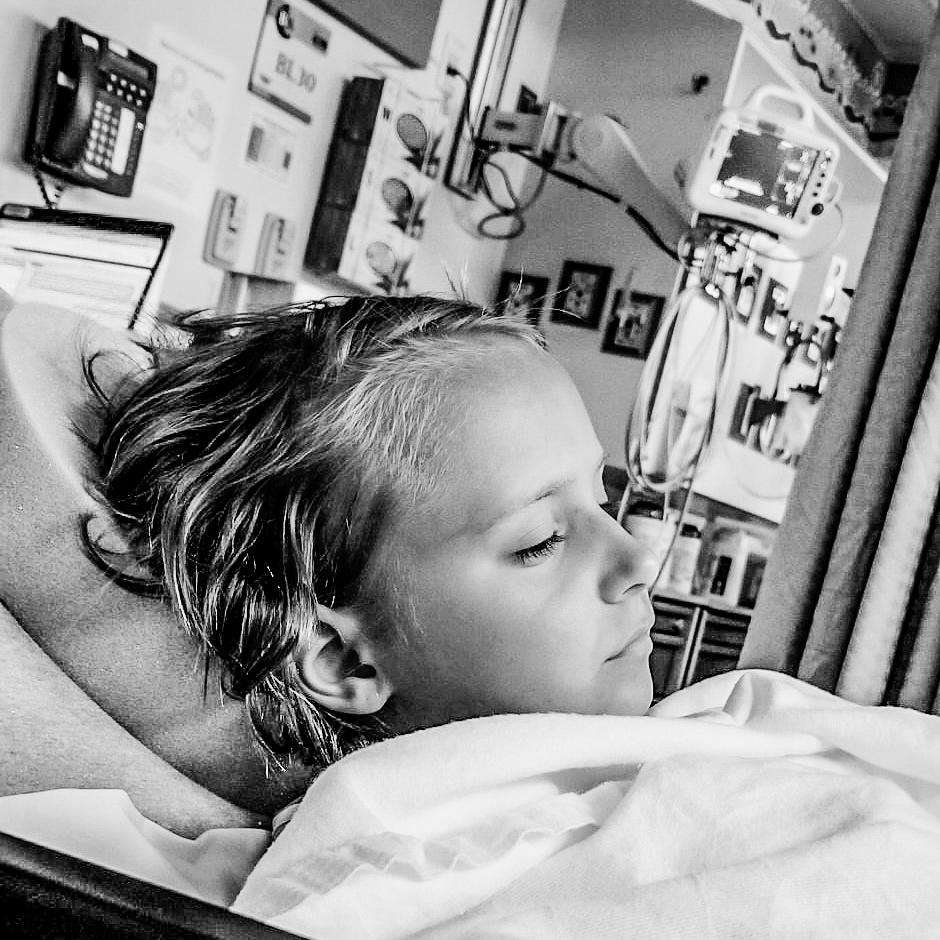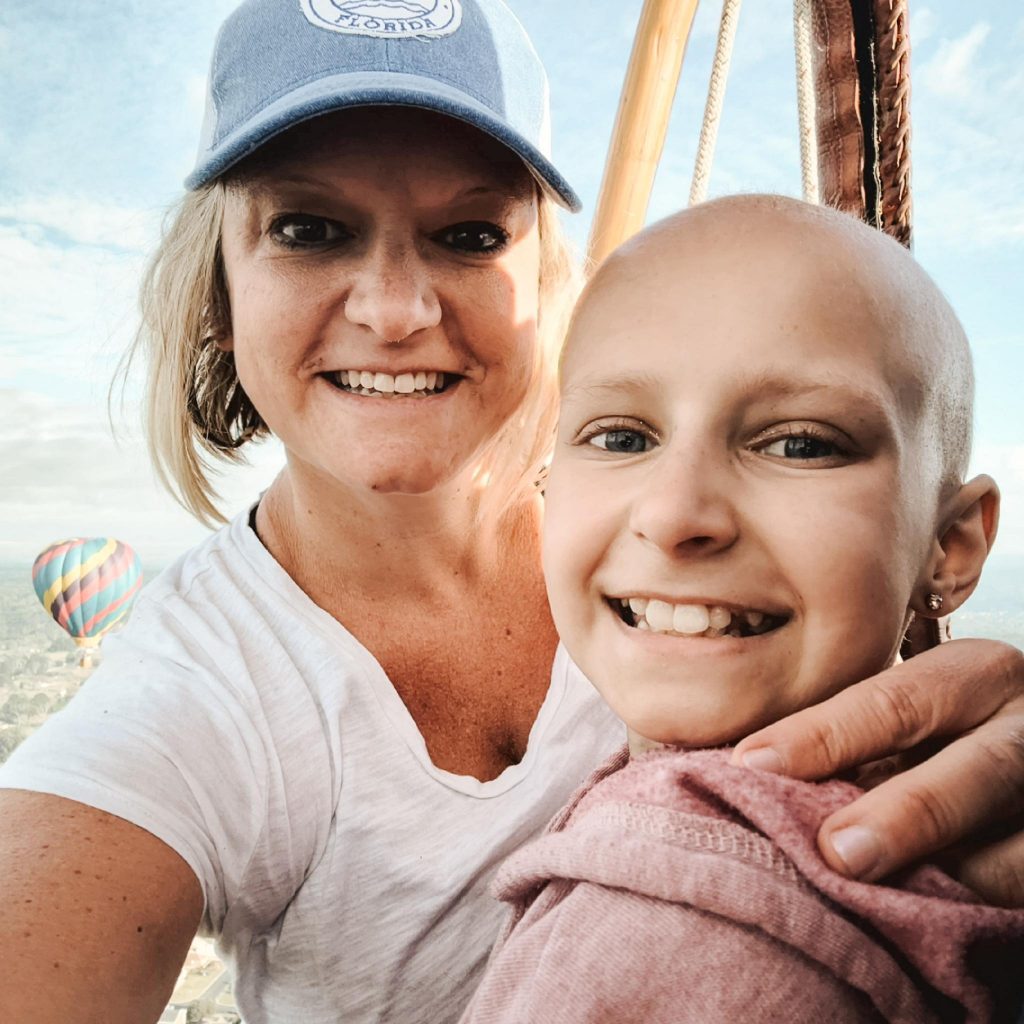5/21/2024
·Enable high contrast reading
Parking Lots and Procedure Rooms

Part of our role as parents is to protect our children while slowly teaching them how to protect themselves. When they are toddlers, we hold their hand in parking lots, knowing they don’t have the knowledge they need to navigate the danger on their own. But when they’re teenagers, we trust them to walk alongside us, navigating the danger on their own. A chosen few of us are called to parent our way through procedure rooms just the same.
 My daughter, Izzy, was three years old when she was diagnosed with cancer. In those early days, I took the lead, telling her what was wrong and what we were going to do about it: “So, once they take the rock out of my tummy it won’t hurt anymore?” Over ten years and six relapses our conversation evolved into one she had a voice in: “What will happen to my body after I die.” That evolution didn’t happen in one moment but in a million tiny moments combined.
My daughter, Izzy, was three years old when she was diagnosed with cancer. In those early days, I took the lead, telling her what was wrong and what we were going to do about it: “So, once they take the rock out of my tummy it won’t hurt anymore?” Over ten years and six relapses our conversation evolved into one she had a voice in: “What will happen to my body after I die.” That evolution didn’t happen in one moment but in a million tiny moments combined.
Izzy’s cancer would never stay away long. So for us, treatment became the only way Izzy could stay alive. At the age of ten, she started asking to have a say in what treatments we did. For years, decisions had been made about her body without her consent and she simply wanted to be part of the conversation: “You talk about me like I’m not even sitting right here.” Her medical team agreed it was time, and soon Izzy began participating in the conversations we had every three months after scans.
At each appointment our doctor would give us the results and tell us what he thought was best. Then ask Izzy if she had any questions. She always did and they were always pretty much the same: “Is there an option where I can just go to school and not do treatment?” The truth is, she knew the answer. But her ability to ask the question gave her what she needed to process the answer. “They say I have options but what they really mean is I can do treatment, or I can die. And that doesn’t seem like much of a choice.” But in the end, it was a choice. And it was the choice she made.
The last few years of Izzy’s life the disease ravaged her bones, often making her unable to walk. While treatment always destroyed the disease in her, after so much toxicity it began destroying all of her. This meant ‘good days’ were a thing of the past. When we weren’t in the hospital for treatment, we were in the hospital controlling the damage of treatment. It suddenly became hard to assess what the real ‘danger’ was. Izzy said: “Fighting cancer your whole life isn’t the same as living.” She was right and together we began to wonder what death could be for her.
 In January of 2021, we made the decision to stop treatment. To leave the hospital and go live life the way she wanted before she died. Izzy walked towards death with curiosity and hope, believing it could offer her the one thing this life no longer could: freedom.
In January of 2021, we made the decision to stop treatment. To leave the hospital and go live life the way she wanted before she died. Izzy walked towards death with curiosity and hope, believing it could offer her the one thing this life no longer could: freedom.
For most of Izzy’s life I fought to keep her here. Holding her hand and teaching her to identify danger and navigate it safely. But in the end, she let go, teaching me that danger isn’t always the thing we think it is. Teaching us all that having to fight to stay alive is not the same as living.
Molly is a Writer, Speaker, and End of Life and Grief Coach in the Indianapolis area. She spent a decade in Pastoral Care before spending the next decade caring for her daughter throughout her cancer journey. She has combined both experiences to help others navigate unimaginable journeys. You can find her writings and teachings on IG at: the.grief.writer, or online at: mollymattockscoaching.com.


